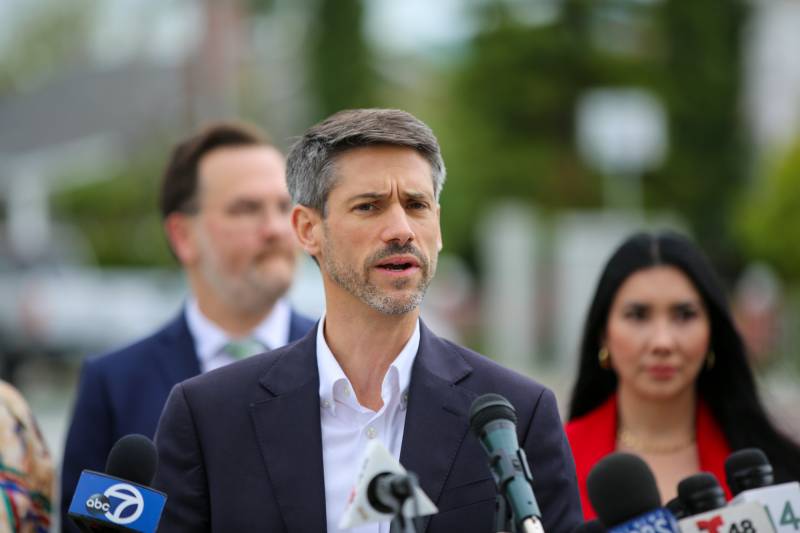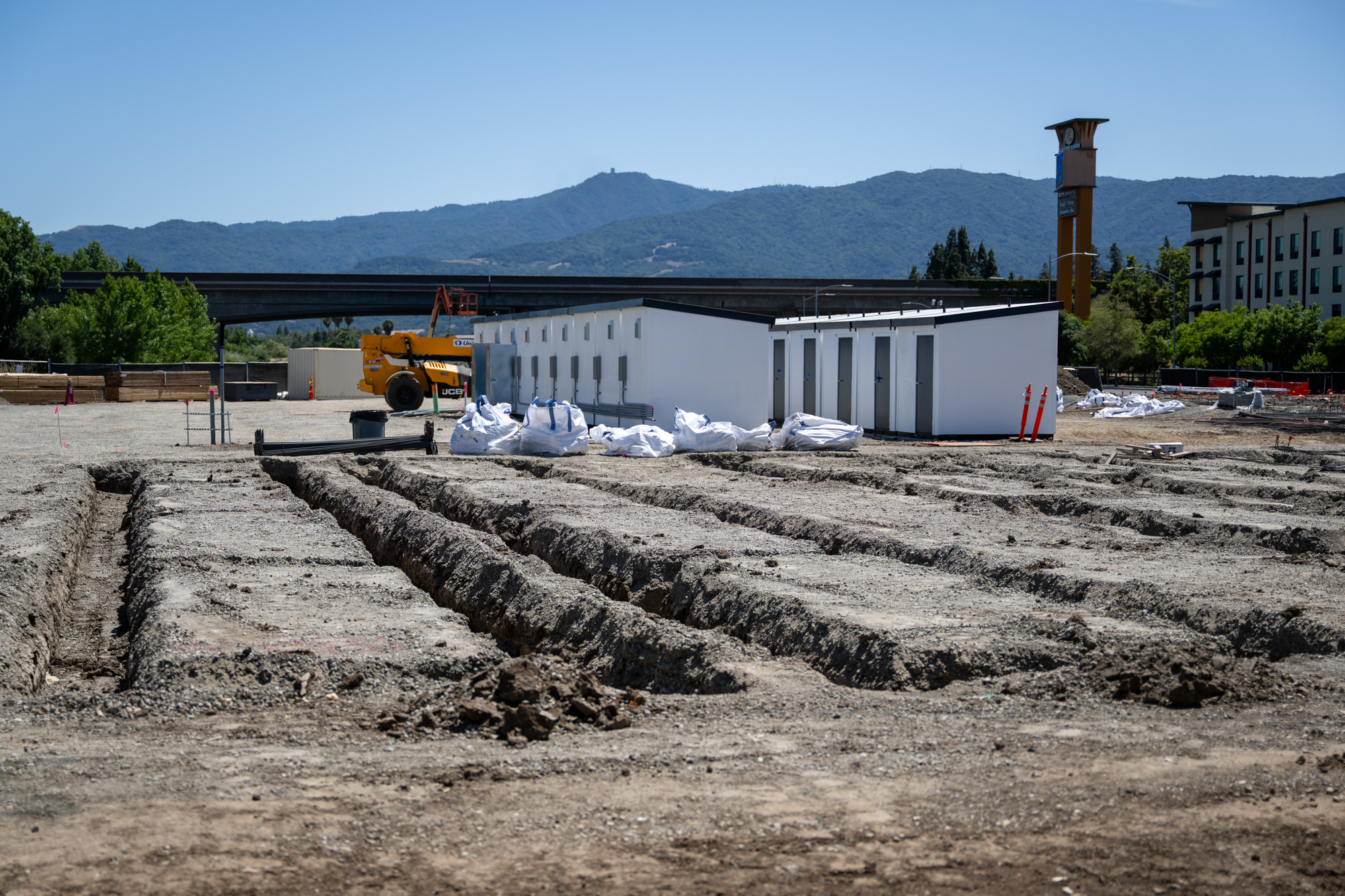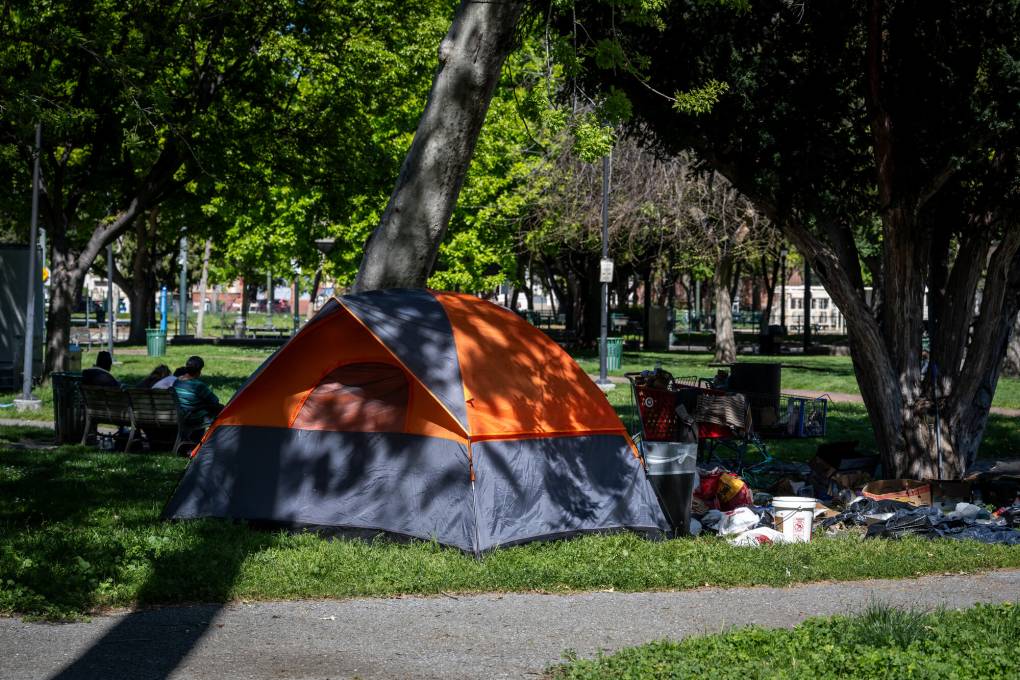San José Mayor Matt Mahan on Wednesday unveiled his final city budget plan, setting up a handful of contentious votes next week on city spending, homelessness and council pay.
In his June Budget Message, the mayor asked the council to shift city funds toward interim housing and shelter, in order to fill a $35.6 million budget shortfall in the fiscal year beginning July 1. The council will vote on that idea on Tuesday, along with a pair of ambitious Mahan proposals: one to potentially arrest unhoused people who refuse multiple offers of shelter and another that would tie the pay of city leaders to a series of performance metrics.
“This budget message is all about focusing on the basics and increasing accountability for results,” Mahan told KQED. “I think accountability for the leadership at city hall is important, I’m calling on the city and county to be accountable for expanding shelter … and I’m saying that individuals in our community should be held accountable for coming indoors when there’s an appropriate shelter or treatment placement that is repeatedly offered to them.”



